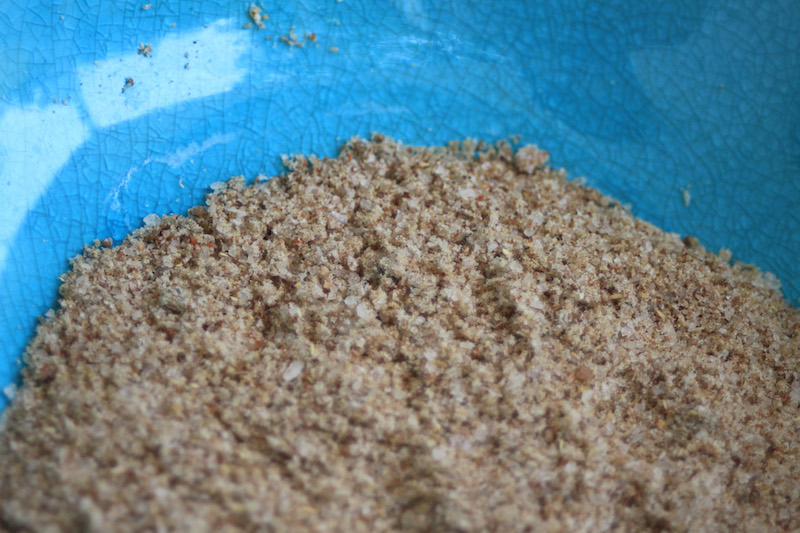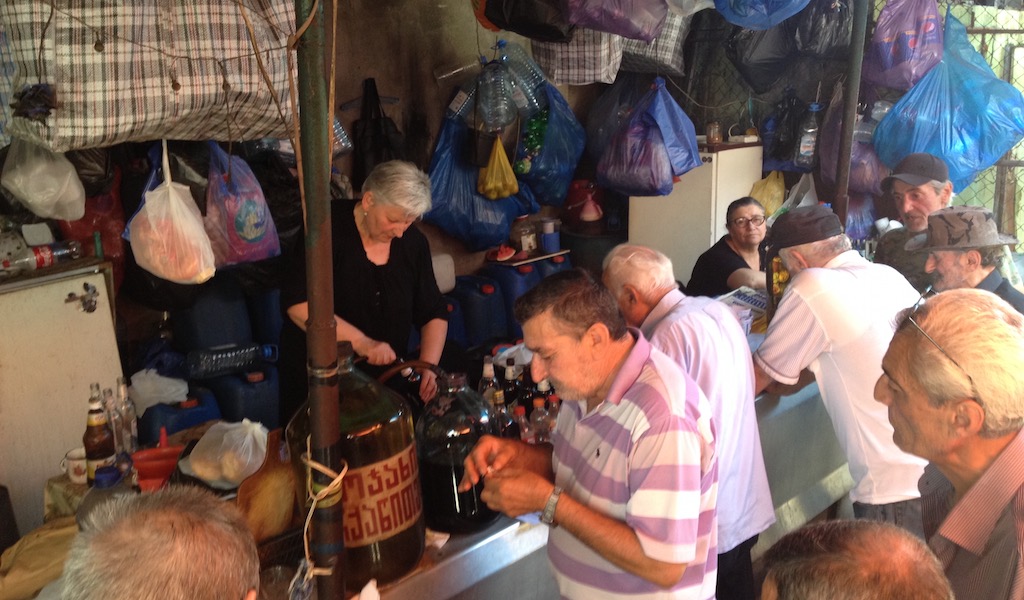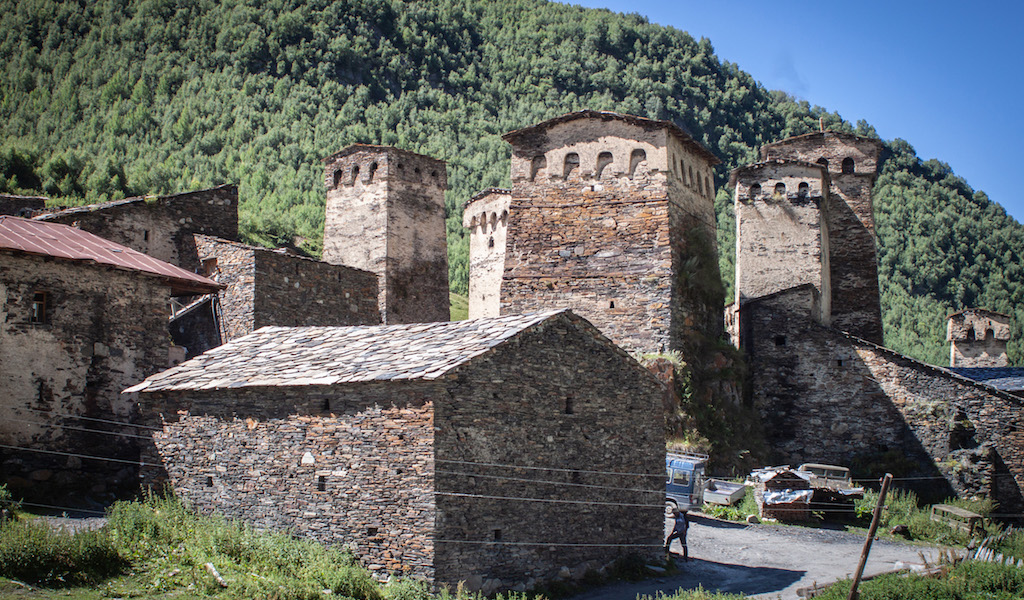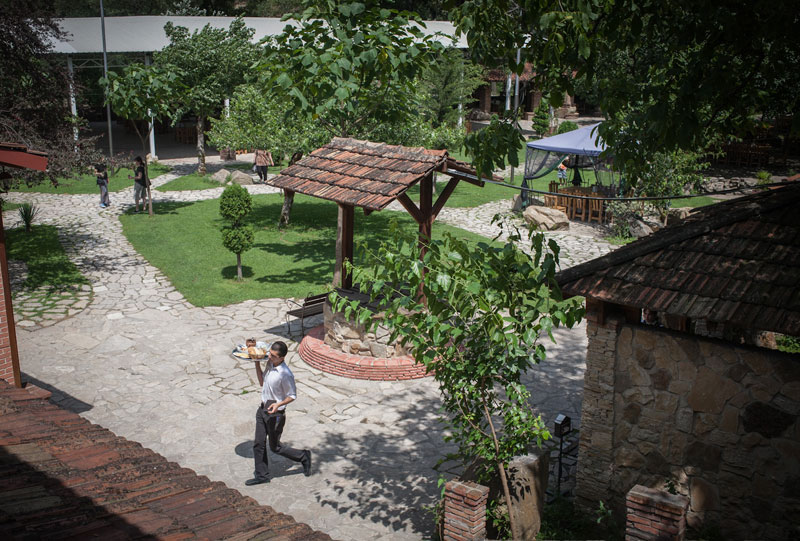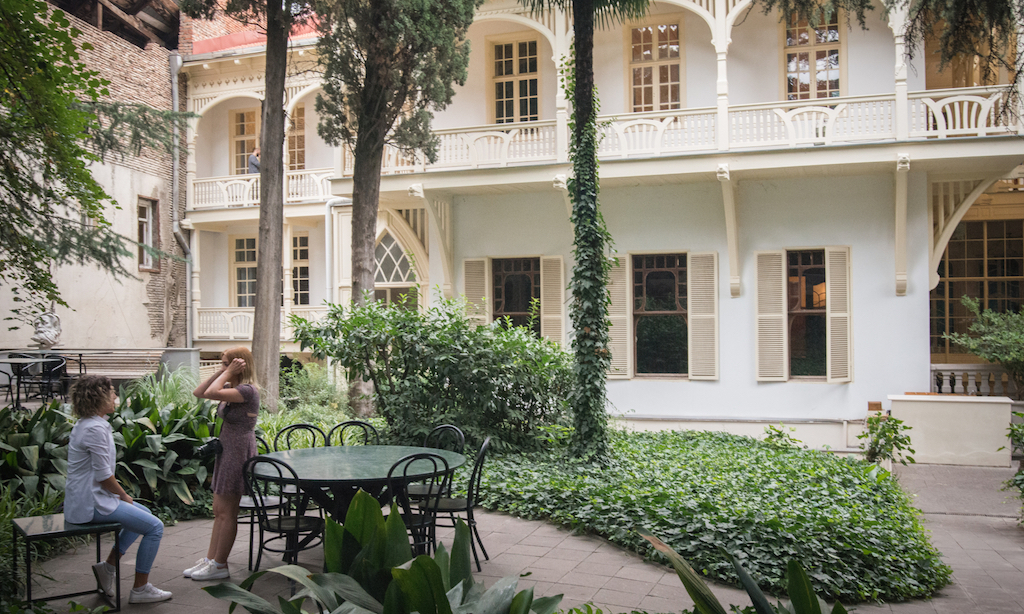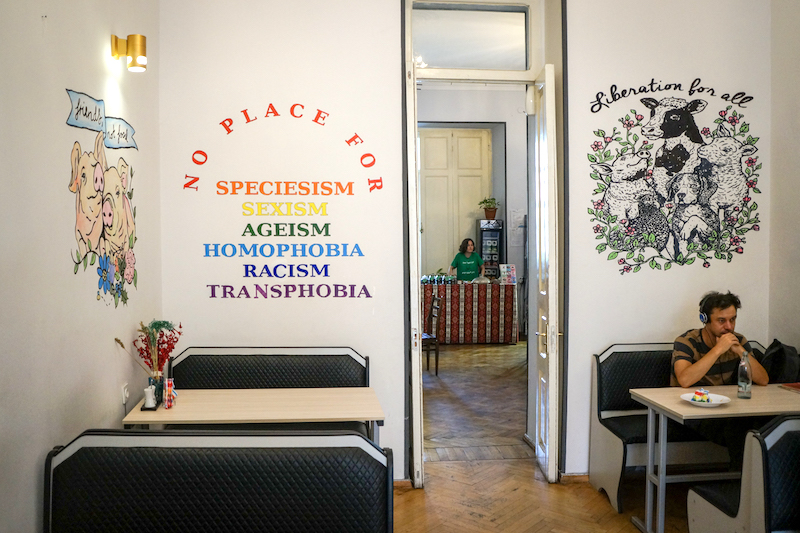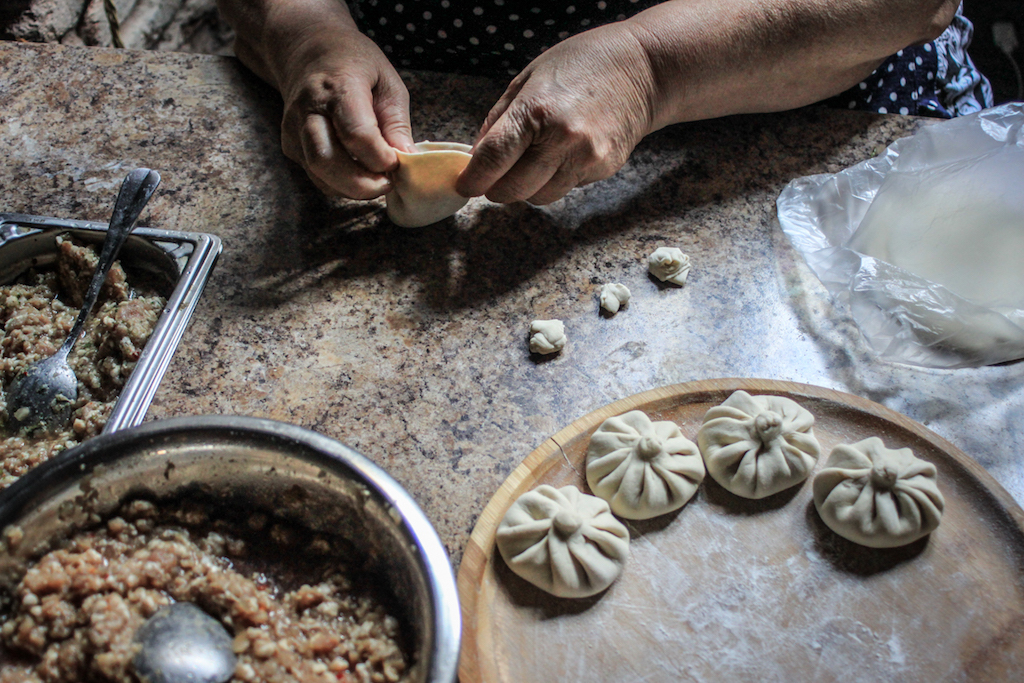We can't find the internet
Attempting to reconnect
Something went wrong!
Hang in there while we get back on track
Search results for "Paul Rimple"
Tbilisi
CB On The Road: Salt of the (Svanetian) Earth
The pavement ended about five kilometers back – that, combined with torrential rains, has made for a bumpy, muddy ride. We are in Kala, a scattering of old stone and wooden homes deep in the bowels of the Svanetian highlands. Tomorrow is Kvirikoba, the most revered religious holiday in the region. Hundreds of people will make the vertical pilgrimage to St. Kvirike and Ivlita’s Church, an 11th-century impossibility of a creation erected on a thumbnail of granite high above the wild Enguri River. Our host is 25-year-old Mariam Khardziani, who returned with her twin sister and aunt to their decaying family home two years ago; they fixed up the traditional two-story house, made of slate and wood, and now rent it as a summertime guesthouse.
Read moreTbilisi
Day Drinking in Tbilisi
While wandering deep in the guts of the Deserter’s Bazaar, Tbilisi’s largest and oldest open-air marketplace, we stumbled upon the raffish wine section where men (mostly) drop by for a few toasts. Join our Old Market & Beyond walk to taste these authentic homemade wines and chacha – Georgia’s legendary take on grappa – for yourself.
Read moreTbilisi
CB On The Road: Seeking Kubdari Perfection in Svaneti
It wasn’t so long ago that no one would venture to Georgia’s Svaneti region without a personal invitation, and even that was risky. Isolated, sky-high in the Caucasus, nestled between the breakaway territory of Abkhazia and the Russian Federation, it was land of the lost, inhabited by a tribe speaking their own language, living in hamlets dominated by tall medieval stone towers used for protection from invading hordes as well as from each other. Ancient pagan-Christian rituals, bride-napping, blood vendettas and banditry defined modern Svaneti – at least when viewed from the outside. We had heard too many stories of how oblivious tourists would wander there with cameras around their necks and big tourist grins only to return in their underwear with their heads hanging low. Like Georgians from the rest of the country, we stayed away.
Read moreTbilisi
Armazis Kheoba: Down by the River
Editor’s note: It’s Beat the Heat Week at Culinary Backstreets, and in this week’s stories, we’re sharing some of our favorite spots to visit when the summer temperatures soar. Summer in Tbilisi means sweet and sour cherries, plums, apricots, peaches, fresh figs, watermelons and, most importantly, tomatoes that taste the way God intended them to. It’s a season bursting with flavors – but there’s a hitch. Tbilisi summers are oppressively hot and humid, the thick, gritty city air leaves a mucky film on the roof of your mouth, stifling your appetite and keeping you out of your favorite local eateries. Everyone evacuates the capital in the summer, and if we can’t manage to get out of town for weeks on end, we can at least drive 15 minutes to spend an afternoon at Armazis Kheoba for some lungfuls of fresh air and beef liver mtsvadi.
Read moreTbilisi
Cafe Littera: A Tbilisi Culinary Pioneer Faces an Uncertain Future
On June 20, Georgian Prime Minister Mamuka Bakhtadze signed a decree abolishing the Writer’s House of Georgia, Tbilisi’s leading institution of literary culture and the home of Cafe Littera, the restaurant that gave birth to the culinary revolution Georgia is currently going through. As soon as the ink was dry, the Writer’s House accounts were frozen and its directors were suddenly dismissed with only half a month’s salary. The fate of Cafe Littera is unknown. The story of the Writer’s House goes back to 1905, when philanthropist and father of Georgian brandy, David Sarajishvili, completed construction of an Art Nouveau masterpiece of a house to commemorate his 25th wedding anniversary to Ekaterine Porakishvili.
Read moreTbilisi
Kiwi Vegan Café: Carnivores Welcome
We had heard about Kiwi Vegan Café even before a dozen thuggish carnivores raided the little vegan restaurant in 2016, munching grilled meat, smoking cigarettes, throwing sausages and fish at customers and starting a brawl that spilled out onto the street. The incident grabbed international headlines, setting the café as a battleground of Western liberalism versus Georgian nationalist extremism. Indeed, many Georgians fear their identity is threatened by “non-traditional” values, such as homosexuality, non-Orthodox religions and electronic music culture. In a land that boasts of its longstanding virtue of tolerance we are seeing a rise in neo-fascist groups and xenophobia.
Read moreTbilisi
Khinkali Chronicles, Part III: Sioni 13
We bit into the khinkali, its handmade dough indelicate and sticky, as we like it. Steam poured out the newly made hole, and we blew lightly before slurping up the rich stock and gobbling the dumpling down, even the puckered knob. The ground pork and beef was packed with fresh cilantro, the juices absorbed into the jacket. It was a perfect khinkali. A home wrecker. This seducer of a dumpling is molded by the knowing hands of Manana Osapashvili, born in Gudamakhari, a mountain village in Pasanauri, the heartland of khinkali. A professional cook for 29 years, Manana has been making khinkali since she was 10 years old. Today, she is running the kitchen at Sioni 13, located at the Tbilisi Theological Seminary in Old Town. It is a part of the city known for its tourists and hookah bars, and the mediocre "traditionnel" Georgian restaurants that cater to them.
Read more